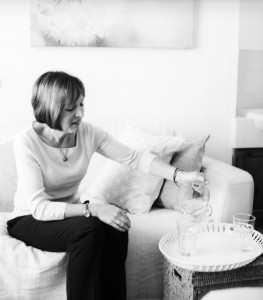Counselling is known as a ‘talking therapy’ where people can safely explore their difficulties with a view to bringing about changes for the better. These difficulties could be about absolutely anything; perhaps present worries, anxieties or feelings of depression, a bereavement, family or relationship issues or stress. Or perhaps past issues, problems in childhood, later difficult life problems or a traumatic incident.
A counsellor will not tell you what to do, or offer advice, but will help you to gain a better understanding of yourself (and others), to find your own answers, explore your own choices and set your own goals to help you to cope with and find your way through your problems.
You can find out more about counselling on the British Association for Counselling & Psychotherapy website – What is Counselling and Psychotherapy?
Types of Counselling
There are three main types of counselling:
- Person Centred or Humanistic Therapy
- Cognitive Behavioural Therapy
- Psychodynamic Therapy or Psychoanalysis.
Person Centred or Humanistic counselling can help you to gain awareness of how the messages you received in childhood, whilst growing up and, later, from significant others and through significant life events shape who you are today and how you deal with things. This approach encourages you to learn and understand how negative responses to life events can have a negative effect on our overall well-being. It is based on the belief that it is not life events that cause problems, but how we experience those life events. This will in turn relate to how we feel about ourselves, affecting self-esteem and confidence. The approach aims for acceptance of both the negative and positive aspects of yourself.
Cognitive Behavioural Therapy can help you manage your problems by changing the way you think and behave. It will help you to spot unhelpful or negative thinking patterns and to examine how these affect how you feel and what you do. It is particularly good for anxiety problems (including OCD), phobias and depression.
Psychodynamic Therapy or Psychoanalysis is a therapeutic process which works with your unconscious mind, aiming to bring the unconscious into conscious awareness. It can help you to understand and resolve problems by increasing awareness of your ‘inner world’ and its influence over relationships both past and present. It differs from most other therapies in aiming for deep seated change in personality and emotional development.
I am trained in both Person-Centred/Humanistic and Cognitive Behavioural Therapies and will use either or both in my work with you depending on your issues and what I feel would work best. I will always discuss with you which type of therapy I think would suit you, why, and how we could work together.
You can read more about the types of counselling on the Counselling Directory


 Telephone
Telephone